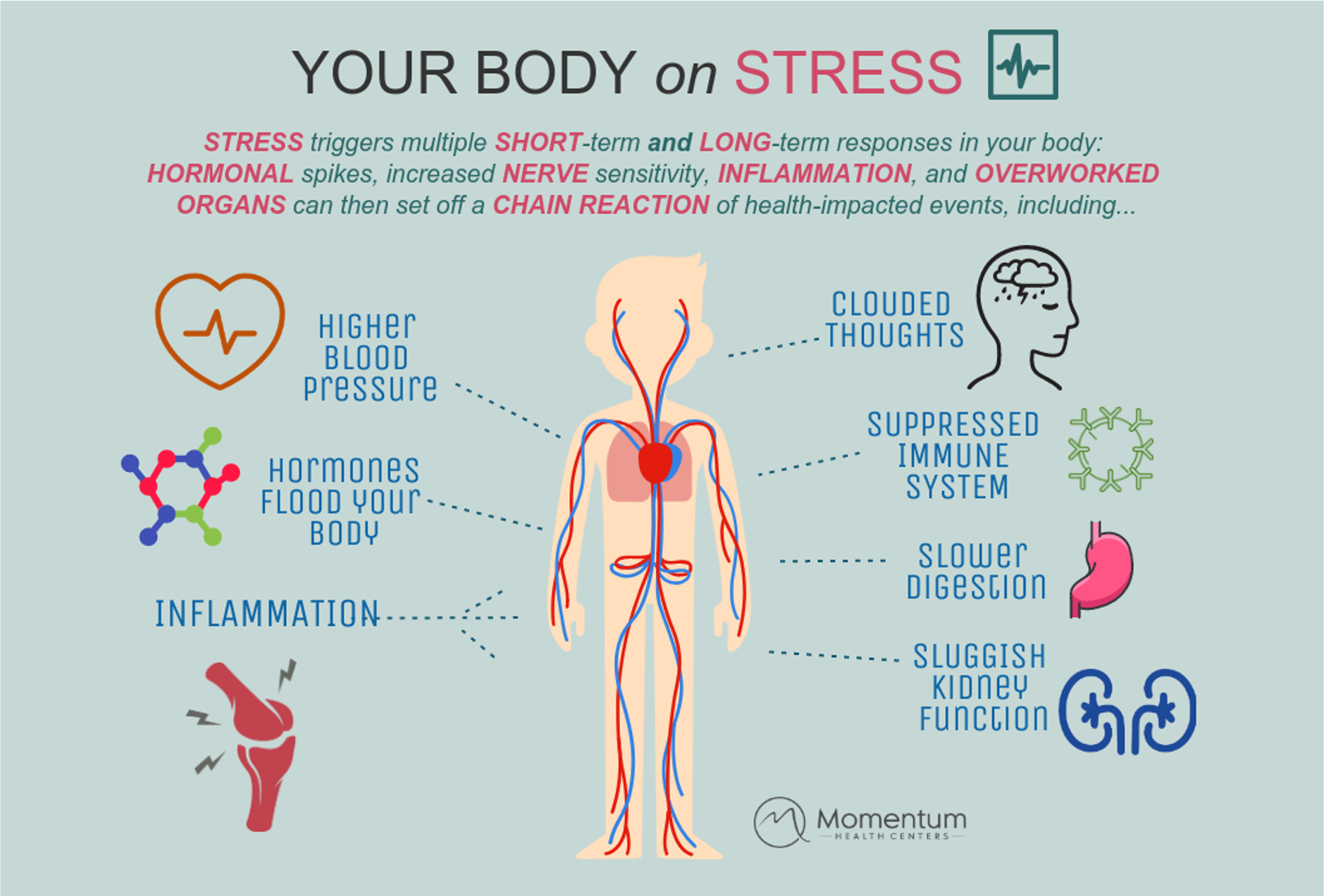
If you have suffered from the debilitating effects of neuropathy for a while, then I am sure you have noticed there are certain foods that intensify your symptoms. You...
Schedule your consultation or contact us at (517) 883-2479
Karen May, DC, CCSP, CCIP
Stress has become such a common condition in our modern world that too many people have begun to accept it as just another part of life. It’s no wonder the vast majority of Americans suffer from one or more chronic conditions related to stress! (How often do YOU feel stress take over?)
Stress is more than an emotional feeling; it’s a chemical and physical reaction in the brain that impacts both mental and physical well-being.
When you experience stress, a complex process kicks into motion: your brain tells your adrenal glands (organs that sit on top of your kidneys) to make more hormones called adrenaline and cortisol; adrenaline kicks your energy up a notch along with cortisol, which increases your blood sugar levels. Cortisol is also responsible for the “spare tire” around your waistline.
When you feel stressed your body shuts down other bodily functions like digestion and other key functions so it can focus on the immediate “threat” your body thinks is most important. Your brain functions differently and causes other, more simple hormones to kick in; your thoughts become clouded… it’s a very real and complex process.
 You Were Not Meant to Have Constant Stress!
You Were Not Meant to Have Constant Stress!The way our body handles stress is called the “fight or flight” response. It protected our ancestors from danger. But the threat was not constant. It happened, the body reacted, and when the threat was gone our ancestors returned to a “normal” stress-free state. It was not a constant problem the way it has become in modern society.
Fast-forward to today and many people live in near-constant stress. Imagine what that flood of hormones and bodily changes can do to the body when it happens so frequently!
Studies show that stress increases inflammation, and inflammation contributes hugely to multiple chronic diseases along with physical and mental pain.
Peripheral neuropathy is caused by nerve damage. This damage can cause pain symptoms like chronic pain, numbness, burning, and tingling sensations in hands and feet.
Have you thought about how, when you are under stress, your neuropathy symptoms seem so much worse? After reading through the symptoms we described above - especially inflammation! - are you surprised?
Stress can cause peripheral nerves in your hands and feet to experience worse numbness, increased burning, and more intense tingling sensations. While anxiety and stress doesn’t “cause” neuropathy, it can absolutely contribute to your symptoms, so finding ways to reduce your stress load should help lower your suffering.
Taking steps to lower your stress will result in numerous health benefits. Along with helping to lessen your neuropathy symptoms, you will improve your digestive health, stabilize your hormones, get better sleep, and reduce inflammation that may be feeding into other chronic issues such as high blood pressure, diabetes, depression, heart disease, and much more.

If you're experiencing high levels of stress, the bottom line is that finding ways to manage and reduce your stress levels will work wonders for your overall health. Try one or more of the tips above, and share in the comments or on our Facebook Page if you have more tips to share!
Share this blog so others can benefit from less stress in their lives and reach out to the Momentum Health team if we can help you get relief from neuropathy pain.
In God and in Health,
Dr. May

Author's Note: Blog updated on January 25, 2023

If you have suffered from the debilitating effects of neuropathy for a while, then I am sure you have noticed there are certain foods that intensify your symptoms. You...

Radiation therapy is a common treatment used for treating cancer. Radiation therapy works by using beams of energy to destroy cancer cells.